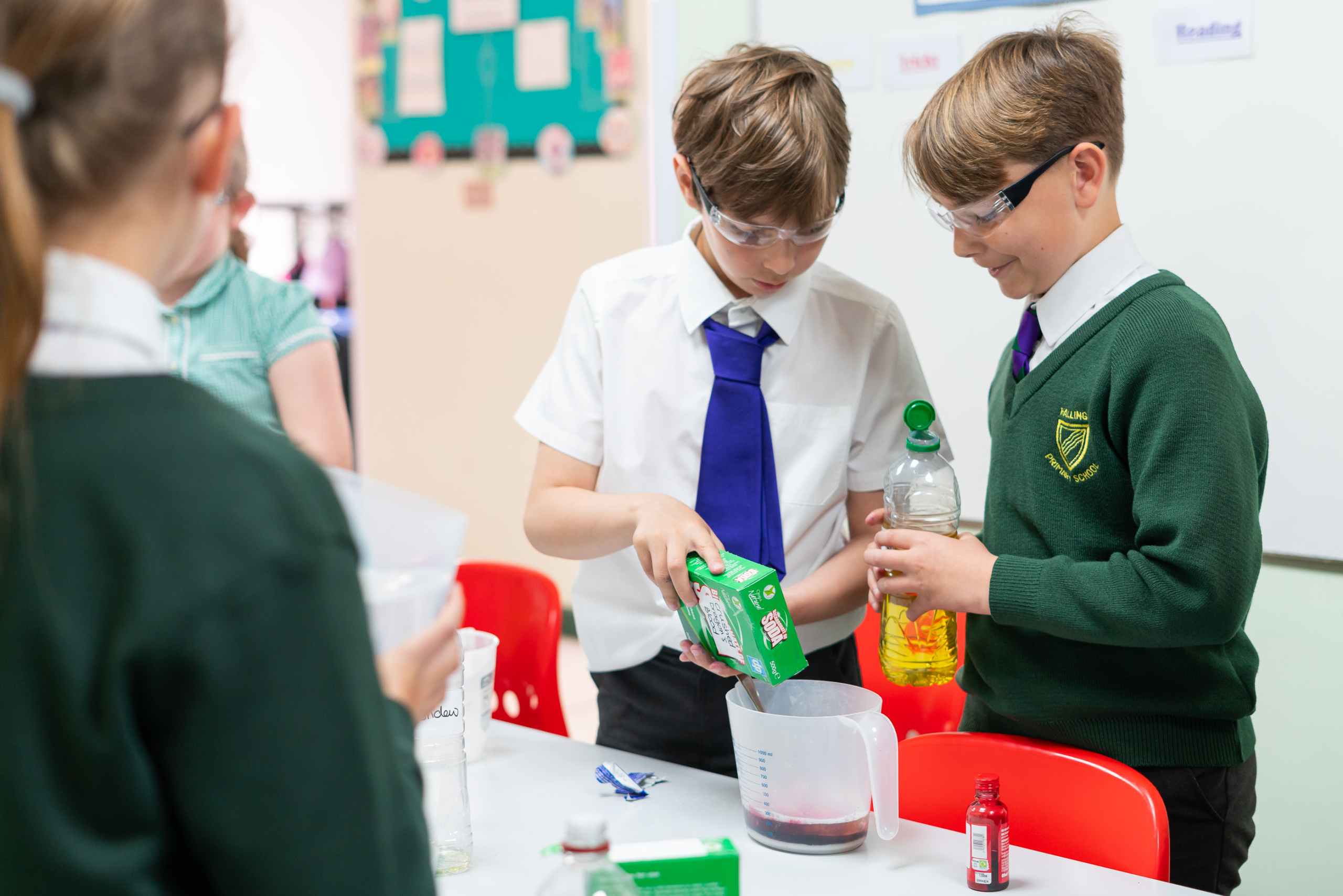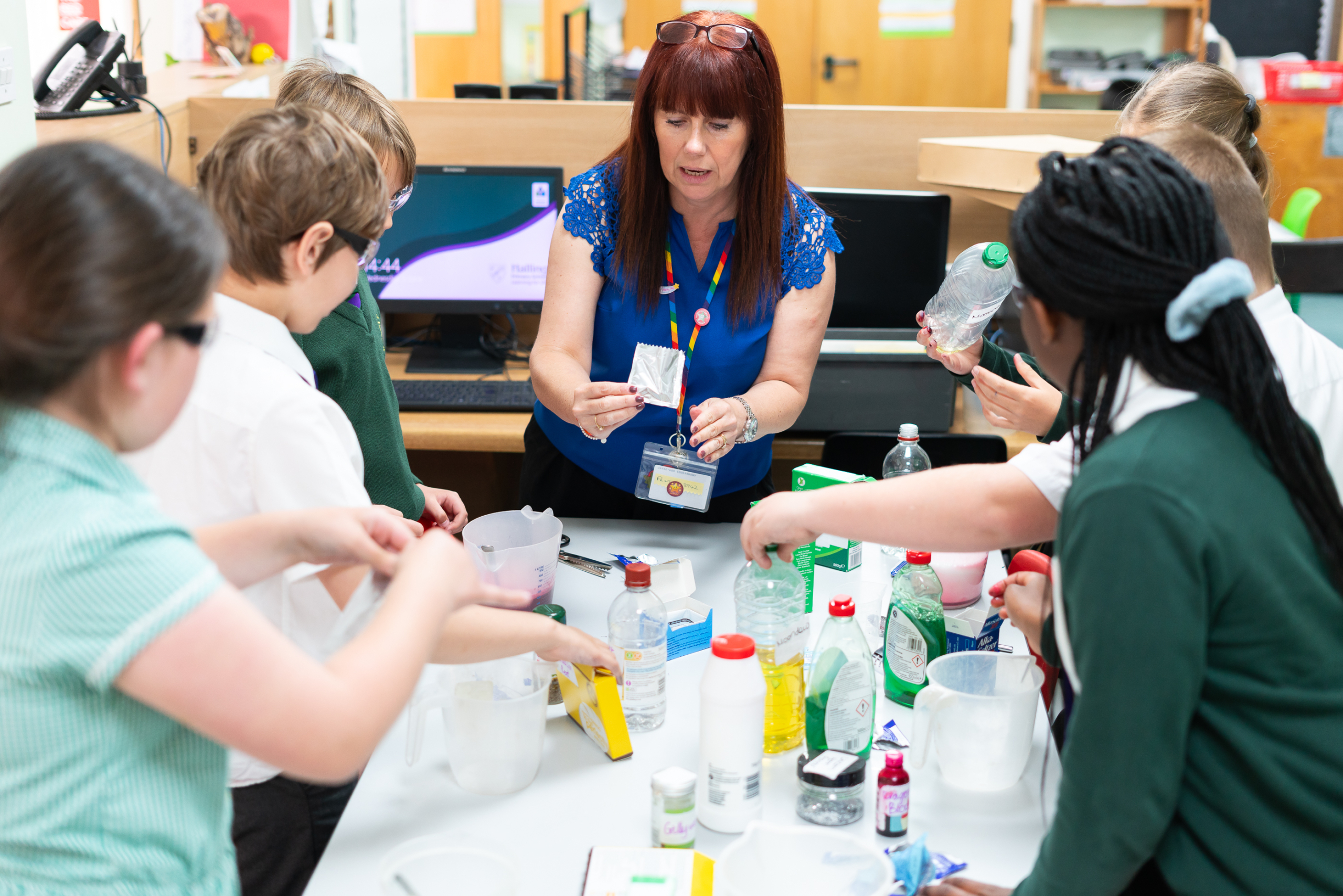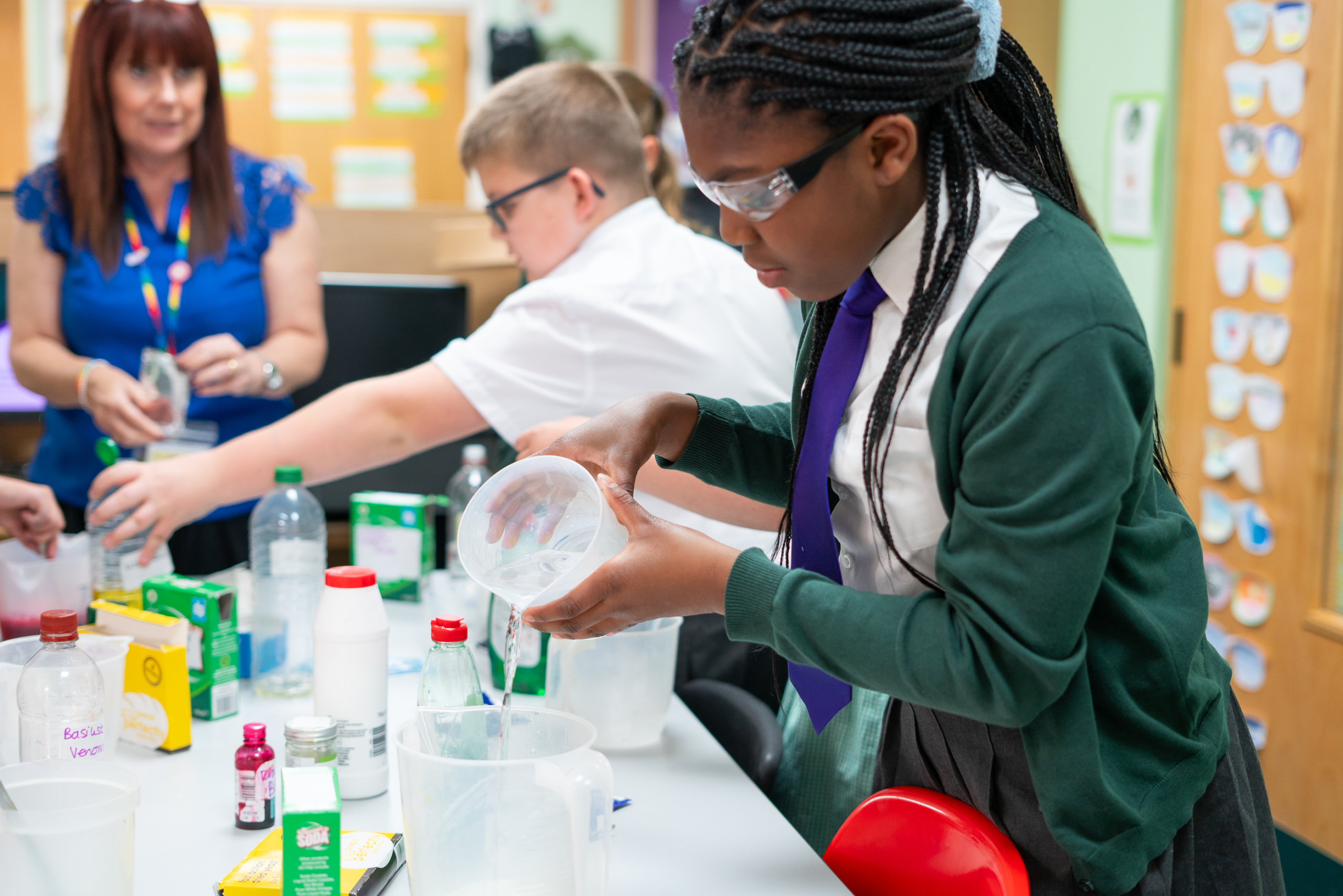Science Subject Leader: Miss E Staven and Miss K Warner
As a core subject, children are able to learn in a variety of different ways about how the world works. We encourage our pupils to be curious about how things work and give them the skills to develop key knowledge of the application of science.
Intent
The intent of Halling Primary School’s Science curriculum includes:
- Fostering Deep Scientific Understanding: Developing a robust grasp of key scientific concepts through a carefully sequenced curriculum that builds knowledge progressively.
- Encouraging Enquiry and Exploration: Cultivating a spirit of enquiry by encouraging students to ask questions, explore ideas, and conduct investigations, thereby nurturing a scientific mindset that values evidence and critical thinking.
- Embedding Core Knowledge and Skills: Ensuring students acquire essential scientific knowledge and skills, including understanding key concepts, mastering scientific methods, and applying their learning in various contexts across biology, chemistry, physics and sustainability.
- Promoting Cross-Curricular Connections: Integrating science with other subjects such as mathematics and literacy to help students see the relevance of science in everyday life and across different disciplines.
At Halling, we encourage children to be curious throughout their time at the school and beyond. The Science curriculum fosters a healthy inquisitive nature in children about our universe and promotes respect for living things.
We believe science encompasses the acquisition of knowledge, concepts, skills and positive attitudes. Throughout the milestones, the children will acquire and develop key knowledge as well as the application of scientific skills.
We ensure that the Working Scientifically skills are built-on and developed throughout children’s time at the school so that they can apply their knowledge of science when using equipment, conducting experiments, building arguments and explaining concepts confidently and continue to ask questions and be curious about their surroundings.


Implementation
Teachers create a positive attitude to science learning within their classrooms and reinforce an expectation that all children can achieve high standards in science. Our whole school approach to the teaching and learning of science involves the following:
To ensure that our intent translates into effective teaching and learning, we have implemented the White Rose Science Scheme as follows:
- Structured Curriculum Planning: The scheme provides a coherent sequence of lessons, ensuring continuity and progression from year to year. Each topic builds on prior knowledge, allowing students to deepen their understanding as they move through the school.
- Support for Teachers: The scheme includes comprehensive resources and detailed lesson plans, enabling our teachers to deliver high-quality science lessons with confidence. Differentiation is embedded in the plans, ensuring that all students, regardless of ability, can access the curriculum and succeed.
- Hands-On Learning: Practical investigations are at the heart of our science curriculum. We believe that students learn best by doing, and the scheme emphasizes hands-on experiments and activities that make abstract concepts tangible and engaging.
- Extra-curricular: Children are offered a range of extra-curricular activities, visits and visitors to complement and broaden the curriculum. These are purposeful and link with the knowledge being taught in class.
- Assessment for Learning: We use a range of assessment strategies to monitor student progress and inform teaching. This includes both formative and summative assessments, as well as regular opportunities for self and peer assessment.
- Key Events: Incorporating key events or a termly focus provided through STEM into Halling Primary School’s calendar allows us to provide broader provision and the acquisition and application of knowledge and skills.
Impact
The successful approach to Science at Halling results in a fun, engaging, high-quality science education, which provides children with the foundations and knowledge for understanding the world.
Our engagement with the local environment ensures that children learn through varied and first-hand experiences of the world around them. Through various workshops, visits and interactions with experts, children have the understanding that science has changed our lives and that it is vital to the world’s future prosperity.
Children learn the possibilities for careers in science, through visiting experts and Science Week activities. Children at Halling overwhelmingly enjoy science and this results in motivated learners with sound scientific understanding.
The impact of our science curriculum, as delivered through the White Rose Science Scheme, is evident in several key areas:
- Scientific Literacy: Our students develop a strong understanding of scientific concepts and methods, equipping them with the knowledge they need to excel in their future education.
- Critical Thinking: Through enquiry-based learning and hands-on investigations, our students enhance their critical thinking and problem-solving skills, which are essential for success in science and beyond.
- Engagement and Motivation: The practical, exploratory nature of our science lessons keeps students engaged and excited about learning. This enthusiasm for science is something we strive to nurture and sustain throughout their time with us.
- Cross-Curricular Learning: By integrating science with other subjects, we provide a more holistic educational experience that helps students make connections across different areas of learning.

Science in Each Stage
Foundation Stage (EYFS) – Understanding the World
Halling Primary School’s science complements the EYFS curriculum by focusing on exploration and observation. The key objectives are:
- Encourage curiosity about the natural world.
- Provide hands-on experiences with materials, living things, and seasonal changes.
- Support children to observe, describe, and compare objects and phenomena.
- Develop language related to science through discussion and storytelling.
- Foster care and respect for living things and the environment.
Links to EYFS ELGs (Early Learning Goals): The Natural World, Speaking and Listening, Fine Motor Skills, and Personal, Social and Emotional Development.
Children build foundational knowledge through direct experience and guided discovery.
- Identify and name common animals, plants, and materials.
- Observe changes across the four seasons and associated weather.
- Describe properties of materials and how they can be changed.
- Explore the basic needs of animals, including humans, for survival.
- Begin to use simple scientific vocabulary to describe observations.
- Carry out simple tests and use results to draw conclusions.
- Record data using drawings, charts, and pictograms.
Working Scientifically:
- Ask simple questions.
- Use observations to suggest answers.
- Perform simple tests and gather data.
Pupils deepen their understanding of scientific concepts and investigative methods.
Lower KS2 (Years 3–4):
- Classify animals and plants based on physical characteristics.
- Understand the functions of skeletons, muscles, and digestion.
- Explore light, forces, magnets, and sound.
- Study changes of state, rocks, and the water cycle.
- Begin using standard units and recording data in tables and charts.
Upper KS2 (Years 5–6):
- Understand life cycles, reproduction, and human development.
- Study properties and changes of materials, including reversible/irreversible changes.
- Explore Earth and space, gravity, air resistance, and electricity.
- Build and refine scientific investigations, controlling variables.
- Report findings using diagrams, keys, graphs, and written explanations.
Working Scientifically:
- Plan enquiries, including fair tests.
- Use results to make predictions and draw conclusions.
- Present and communicate findings effectively.
Science Progression
Assessment
The Science Assessment Rubrics provide a structured and progressive framework for evaluating pupils’ understanding of scientific concepts, enquiry skills, and the world around them from Year 1 to Year 6. These rubrics ensure progression from simple observation and questioning through to systematic investigation, explanation, and critical evaluation of scientific evidence.
Science will be monitored throughout the school by the Science Subject Leaders who will support staff with planning and resources, leading curriculum development and staff member’s continuing CPD.
Subject leads are also responsible for gathering samples of curriculum work, monitoring planning and reviewing pitch and expectations across the school. Science books and the delivery of lessons will be reviewed to ensure the science curriculum is being effectively taught and matched to the needs and abilities of the pupils.
Data outcomes of teaching and learning will be reflected upon with feedback delivered to staff members, Senior Leadership and School Governors as required.
SEND Information
Our SEND and disadvantaged pupils are given the necessary support in class to fully access the supported Science curriculum. Learning is adapted where necessary to support SEND/EAL pupils to give equal opportunities for all to be confident in approaching any problems faced. Interventions, support and challenges are constantly revised and adapted to ensure all children are supported in achieving learning. The above areas are robustly and continuously monitored to ensure any gaps in learning are addressed.

